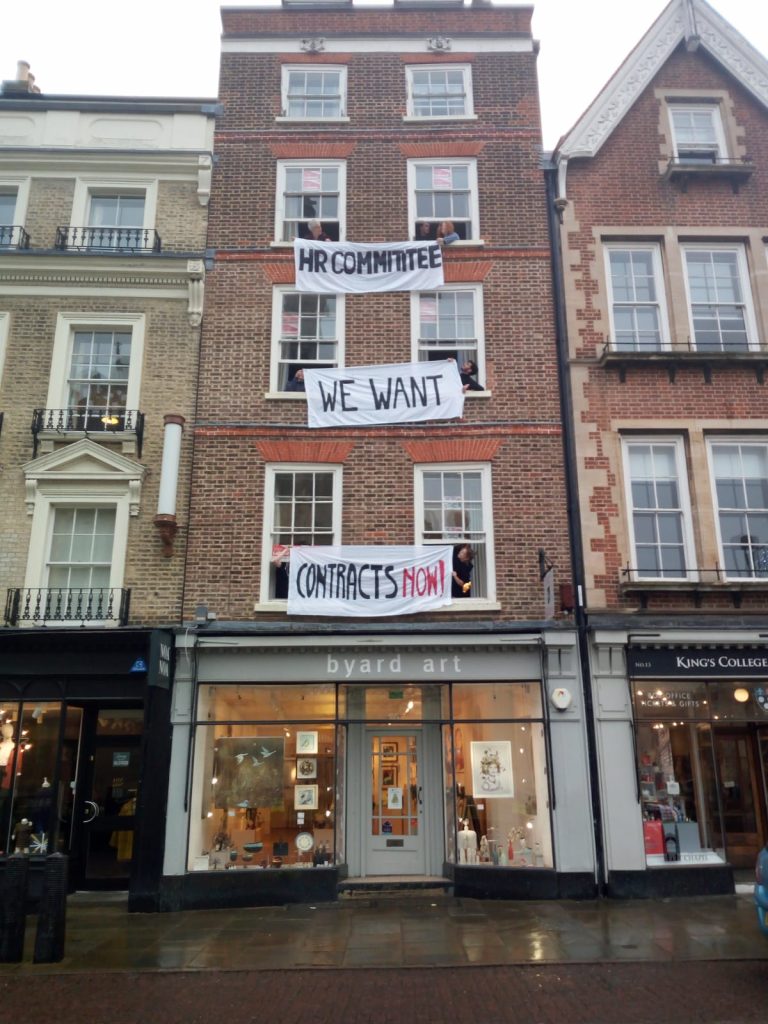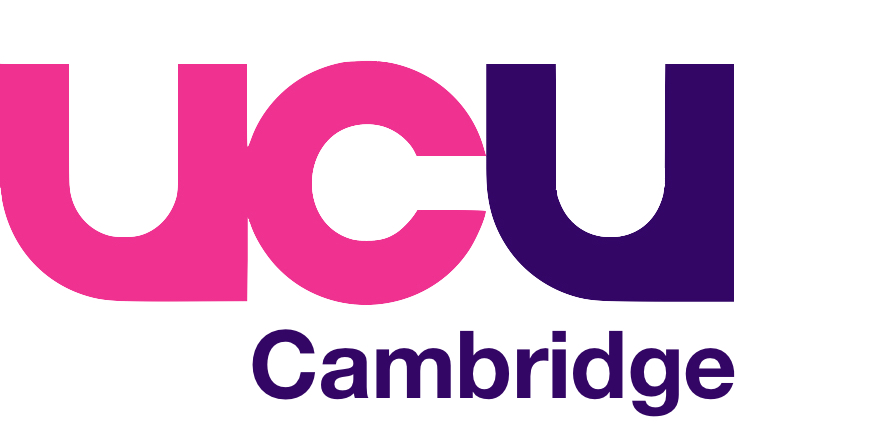
After 2 years of campaigning, Cambridge UCU (CUCU) applauds a major milestone on the road to more secure work for hundreds of staff across the university on the eve of historic strike action. During a meeting to discuss the use of fixed-term contracts and the future management of the University’s Casual Workforce on 28 November 2019, the HR Committee of the University of Cambridge agreed to in-principle consider:
- The transfer of hourly paid teachers to employment contracts, where these workers have been teaching and lecturing on a regular basis for some time (an estimated 500 people will be affected by this change).
- Review of around 700 fixed-term contracts (both academic-related and assistant staff) in roles of an ongoing nature, to identify those who could be transferred from fixed-term to open-ended roles.
This announcement comes in light of sustained campaigning by CUCU. In December 2018 the UCU lodged an anti-casualisation claim with the University and launched the accompanying Raise the Bar campaign to improve the conditions of staff on insecure contracts. On 28 November 2019, UCU members and other casualised staff rallied together outside Old Schools to put pressure on the meeting of the HR Committee. The message of casual staff was clear: HR COMMITTEE, WE WANT CONTRACTS, AND WE WANT THEM NOW!
Lorena Gazzotti, CUCU anti-casualisation officer, said “this is a huge win in our campaign to Raise the Bar for casualised staff at the University of Cambridge. A year ago, none of this would have been possible. Back in May, the University told CUCU that the majority of hourly-paid, self-employed lecturers in the University are “experts who are employed elsewhere and are acting as guest lecturers on specialist subjects”, despite claims by CUCU that the reality was much different”.
After frustration with the progress of the negotiations, CUCU organised a protest during the University Open Day on 4 July 2019, where casualised staff called on the University for transparency, as they wanted “students to know about the exploitation behind Cambridge’s unique teaching offer“. Stephanie Mawson, CUCU membership officer, said “Without the hard work of the supporters of the Raise The Bar campaign, members of the anti-casualisation working-group, and UCU members that have come to negotiating meetings with University HR, some of whom are themselves experiencing extremely high levels of casualisation, none of this would have been possible. To all of them, we want to say: thank you”.
Although this is a huge victory in the anti-casualisation campaign, CUCU sees that more work is needed to secure the progress made so far. “Although we have won this battle, more work is needed to win the fight” Ruth Lawlor, CUCU anti-casualisation officer, said. “CUCU is still hard at work negotiating with senior members of the university on other parts of our claim. We will advocate for as many as possible of the 700 employees on fixed-term contracts whose position will be reviewed to be moved to open-ended contracts. We need to make sure that University HR will not back down from their proposal to offer employment contracts to 500 people and fight to extend these rights to many more casualised teaching staff. We will continue working to assist and monitor the implementation of both papers, and will continue negotiations with HR on the other points included in our 2018 anti-casualisation claim. We will also work to tackle the precarious working conditions of research staff on fixed-term contracts, to improve their job security and introduce possibilities of redeployment”.
CUCU is planning to expand the anti-casualisation campaign towards the colleges. Jenny Marchant, CUCU president, said “As we all know, casualisation in the intercollegiate University is pervasive and widespread. We continually receive messages from many of you telling us how unsustainable and precarious life is for those providing undergraduate supervisions, and that our members need things to change at the college level as well. We are preparing a new campaign to tackle casualisation in the Colleges, and we will need your energy and your support to win also on this front”.
